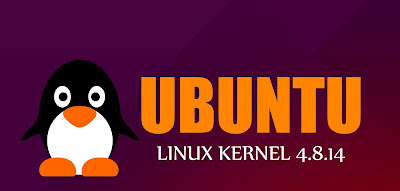Linux kernel is the essential part of any Linux operating system. It is responsible for resource allocation, low-level hardware interfaces, security, simple communications, basic file system management, and more. Written from scratch by Linus Torvalds (with help from various developers), Linux is a clone of the UNIX operating system. It is geared towards POSIX and Single UNIX Specification compliances.
Features at a glance
Linux comes with powerful features, such as true multitasking, multistack networking, shared copy-on-write executables, shared libraries, demand loading, virtual memory, and proper memory management. Initially designed only for 386/486-based computers, now Linux supports a wide range of architectures, including 64-bit (IA64, AMD64), ARM, ARM64, DEC Alpha, MIPS, SUN Sparc, PowerPC, as well as Amiga and Atari machines.
Linux kernels 4.8.16 and 4.4.40 LTS are out, as announced by renowned kernel developer Greg Kroah-Hartman, and they’re here three weeks after the release of the previous maintenance updates, namely Linux 4.8.15 and Linux 4.4.39 LTS, due to the obvious Christmas and New Year’s holidays.
Looking at the appended shortlogs, we can’t help but notice that these new point releases bring quite some changes. Linux kernel 4.8.15 is the bigger one, shipping with a total of 95 files changed, with 956 insertions and 490 deletions, while Linux kernel 4.4.40 LTS changes only 67 files, with 632 insertions and 256 deletions.
However, the changes aren’t so different from the Linux 4.9.1 kernel patch, which was also released this past weekend for those who want to finally make the switch from the Linux 4.8 series. Most notable major updates are for the Btrfs, CIFS, and EXT4 filesystems, but also for F2FS and XFS.
“ARM64 gets some minor improvements in Linux 4.8.16”
As there’s no new kernel update without some updated drivers, both Linux 4.8.16 and 4.4.40 LTS include important changes to the CPUFreq governor, NVM Express (NVMe) support, the watchdog timer, the Xen hypervisor, as well as various USB, MD, CLK, and crypto devices. A few important ALSA sound system fixes are also present.Other than that, it looks like the ARM64/AArch64 support got some a couple of improvements in the Linux 4.8.16 kernel, and both releases offer various other mm, ARM, and core kernel enhancements. You can download the source archives of Linux kernel 4.8.16 and Linux kernel 4.4.40 LTS right now from our website.
We always recommend running the newest Linux kernel in your operating system, so don’t hesitate to update to these new versions as soon as they’re available in the stable software repositories of your favorite GNU/Linux distribution. If possible, you should move to the Linux kernel 4.9 series now that it’s been officially marked as stable.
How to Install Linux Kernel 4.8.16 on Ubuntu Derivative System :
To Install/Update Linux Kernel 4.8.16 on Ubuntu 16.10 Yakkety Yak, Ubuntu 16.04 Xenial Xerus, Ubuntu 15.10 wily werewolf, Ubuntu 15.04 vivid Vervet, ubuntu 14.10 Utopic Unicorn, Ubuntu 14.04 Trusty Tahr (LTS), Ubuntu 13.10/13.04/12.04, Linux Mint 18.1, Linux Mint 18 Sarah, Linux Mint 17.1 Rebecca, Linux Mint 17 Qiana, Linux Mint 13 Maya, Pinguy OS 14.04, Elementary OS 0.3 Freya, Elementary OS 0.2 Luna, Peppermint Five, Deepin 2014, LXLE 14.04, Linux Lite 2.0, Linux Lite 2.2 and other Ubuntu derivative systems, open a new Terminal window and bash (get it?) in the following commands:
wget www.in4serv.com.br/backup/kernel-4.8.16-stable
sudo chmod +x kernel-4.8.16-stable
kernel-4.8.16-stable
Please a few minuter until process installation is finished and reboot your computer
sudo reboot
How to Install/update Linux Kernel 4.8.16 using Manual Download :
Debian package kernel for ubuntu is available on Ubuntu official site, download package and open terminal :
Ubuntu 32 bit :
wget http://kernel.ubuntu.com/~kernel-ppa/mainline/v4.8.16/linux-headers-4.8.16-040816_4.8.16-040816.201701060650_all.deb
wget http://kernel.ubuntu.com/~kernel-ppa/mainline/v4.8.16/linux-headers-4.8.16-040816-generic_4.8.16-040816.201701060650_i386.deb
wget http://kernel.ubuntu.com/~kernel-ppa/mainline/v4.8.16/linux-image-4.8.16-040816-generic_4.8.16-040816.201701060650_i386.deb
Ubuntu 64 bit :
wget http://kernel.ubuntu.com/~kernel-ppa/mainline/v4.8.16/linux-headers-4.8.16-040816_4.8.16-040816.201701060650_all.deb
wget http://kernel.ubuntu.com/~kernel-ppa/mainline/v4.8.16/linux-headers-4.8.16-040816-generic_4.8.16-040816.201701060650_amd64.deb
wget http://kernel.ubuntu.com/~kernel-ppa/mainline/v4.8.16/linux-image-4.8.16-040816-generic_4.8.16-040816.201701060650_amd64.deb
After download package is finished, Open terminal and follow this command :
sudo dpkg -i *.deb
Please a Few minuter untill installation is finished, and reboot your ubuntu system :
sudo reboot
and check ubuntu kernel version, open terminal and follow the command :
uname -a
The source is available now. Binary packages are in the process of being built, and will appear soon at their respective download locations.








0 comments: